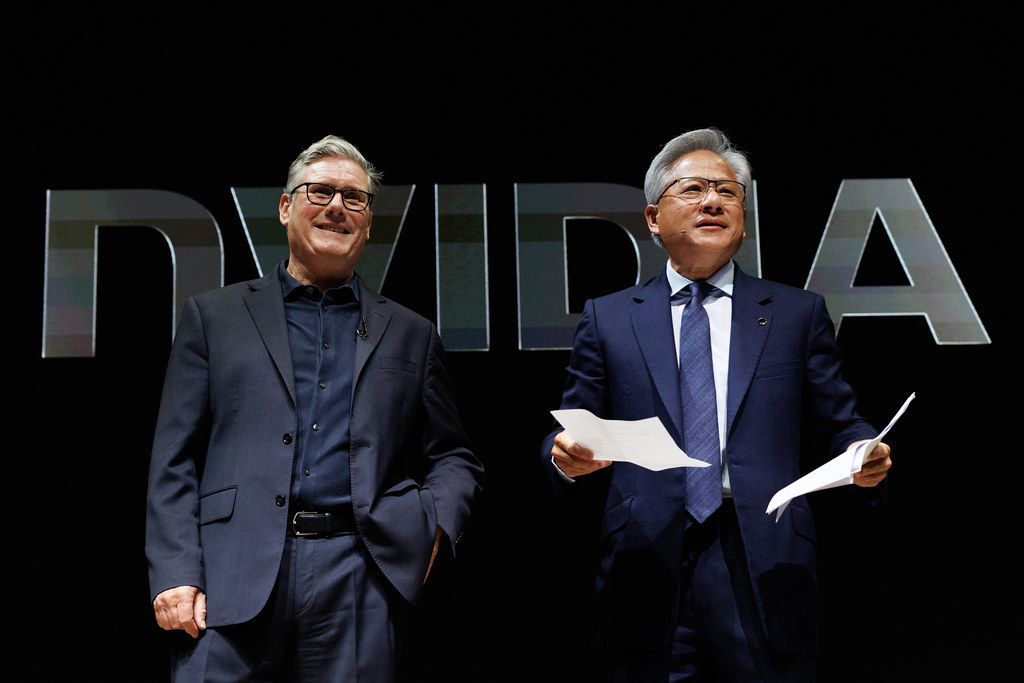LIVERPOOL – Gas companies and Conservative lobby groups have been leaning on the Labour Party to allow tech companies to use gas to power their energy-guzzling artificial intelligence (AI).
A number of events have taken place at Labour’s annual conference in Liverpool this week focused on how the UK can become a leader in building AI infrastructure.
During U.S. President Donald Trump’s visit to the UK earlier this month, the two countries announced a ‘Tech Prosperity Deal’ that will see some of the world’s biggest companies invest in UK AI, including in a fleet of new data centres.
This infrastructure will require vast amounts of energy, and lobbyists have been putting pressure on Labour during the conference to allow data centres to be powered by fossil fuels.
At an event hosted by Cadent, the UK’s largest gas distribution network, its head of external affairs Arnie Craven said that he had received a message on LinkedIn last week from a data centre developer asking for information about being connected to the gas grid.
DeSmog asked Craven how he responded to the enquiry, to which he said: “I think it’s important to recognise that data centre operators are looking across the energy piece… There’s demand [for gas]. There’s clear demand.”
Subscribe to our newsletter
Stay up to date with DeSmog news and alerts
Speaking at another event, Sam Dumitriu of Britain Remade – a right-wing think tank run by former Tory advisors and Tufton Street lobbyists – said that gas and nuclear would be “really important” to powering data centres in the UK.
The event – hosted by Labour Digital and Nvidia, the U.S. tech giant that has pledged to invest £11 billion in the UK – featured Labour’s AI minister Kanishka Narayan, and the UK AI firm NScale.
Nvidia, which donated $1 million (£750,000) to the Trump inauguration ceremony, has said that UK data centres should be powered in part by fossil fuels.
Dumitriu defended Huang’s comments and said that he sees “a really big opportunity” for the UK in data centres requiring large amounts of energy. “Because the more demand you have and the more generation you get online, the more we can drive down fixed costs of energy,” he said.
The CEO of Britain Remade, Sam Richards, was an energy and environment advisor to former Conservative prime minister Boris Johnson while Dumitriu – its head of policy – used to work at the Adam Smith Institute, part of the Tufton Street network of opaquely-funded, anti-climate lobby groups.

The average data centre uses enough energy to power roughly 5,000 UK homes, and between 11 million and 19 million litres of water per day, the same as a town of 30,000 to 50,000 people. There are 480 data centres in the UK, with another 100 planned for the next five years.
Fintan Slye, the CEO of the UK’s National Energy Systems Operator (NESO), told The Guardian that, even before Labour announced its plans for an AI boom, the country was already at the “outer limit of what’s achievable” in terms of its planned renewable energy development.
Dumitriu and tech companies therefore see fossil fuels as a core part of AI growth.
The Financial Times reported in August that five large data centre projects in the south of England had made formal enquiries to National Gas about building their own gas-fired power stations and connecting them to the grid.
DeSmog recently revealed that some data centre operators are also attaching vast amounts of “backup” diesel generators to their sites, including one in Blyth that has enough generators to produce as much power as a nuclear plant.
In a June meeting of Labour’s AI Energy Council – which includes Google, Amazon Web Services, Microsoft, UK chip designer ARM, and American data centre operator Equinix – ministers were asked to consider “temporary on-site generation, including natural gas fuel cells” as an “interim measure”.
Responding to Politico, the government said it is considering a range of energy options for data centres, and repeatedly refused to rule out authorising on-site gas plants in the future, but indicated this was not the current plan.
At the Nvidia event, Narayan suggested that the government believes there is no conflict between its push for new data centres and its clean power objectives – echoing the speculative claims of big tech companies that AI development is justified because the technology will eventually be used to solve climate problems.
Narayan claimed that “in those horseshoe extremities of British politics, you have the belief that we are in a trajectory of necessary scarcity” in relation to energy and other policy areas.
“The belief is that we are necessarily in a world of fundamental trade-offs,” he said – adding: “there’s a competing vision, which is the vision that this government believes, which is the vision that you can break through those trade-offs.”
The International Energy Agency forecasts that the energy requirements of data centres will quadruple by 2030 – to nearly as much energy expenditure as Japan. Meanwhile, NESO says that, by the same year, data centres will guzzle 7 percent of Britain’s entire energy output.
Additional research by Rei Takver
Subscribe to our newsletter
Stay up to date with DeSmog news and alerts






